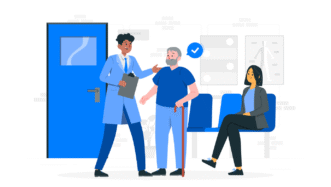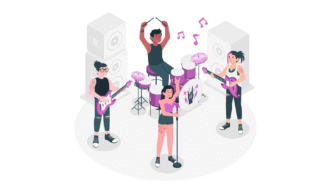LESSON OVERVIEW
In this lesson students discover different meanings as well as expressions with good and bad. They also get an opportunity to put them into practice while reacting to some real-life situations.
WARM-UP & EXPRESSIONS WITH GOOD AND BAD
The lesson starts with a quick warm-up. Students read five pairs of expressions with good and bad and have to complete them with the missing prepositions (the same for each pair). Then, they choose one situation from each pair and discuss them. To create students’ interest in the next task, you could elicit from them what parts of speech the words good and bad could be and get them to revise the expressions they already know. Students then focus on five different sentences with good and bad and analyse what the two words mean in them and what parts of speech they are. Engaging in another discussion helps students consolidate the new expressions. The following task consists of nine gapped dialogues. First, students have to complete the gaps in the underlined expressions with the words good or bad and then, figure out their meanings (e.g. so far so good, that’s a good one, too bad).
WRITTEN & ORAL PRACTICE
The second part of the lesson is all about putting the underlined expressions with good and bad into practice. Students start with a writing task and create two more dialogues with the chosen expressions from the previous exercise. Then, they engage in a speaking game. In turns, they choose a card which presents a real-life situation (e.g. You see the most amazing car in the world) and have to react to it using one of the expressions with good or bad learnt earlier. We prepared fifteen different situations for teachers to use in this final speaking activity.
WORKSHEETS
Subscribe to unlock these and many other Standalone lesson with the Premium plan
Subscribe














This is a good lesson, very relevant and useful. But please correct 1. e) to read :
a person who’s always been good to you
Hi Gail! Apologies for the mistake! Thanks so much for letting us know! We’ve already corrected it.
Is the phrase ‘real bad’ often used?
That’s an interesting question and probably to answer it we’ll have to define the word ‘often’. However, it’s not so easy, so to answer your question, I can say that this colloquial phrase is present in spoken language, films, music, etc., but also books (see this: https://cutt.ly/aRlcVHy).
I’m a native speaker and “real bad” is often used in American English. For ex: “I’ve got it real bad” when talking about being sick or, funnily enough, in love!
Wonderful lesson! Thank you.
Thanks 🙂
Error in the cards noted… “Your friend is saying they’re not coming to the party”… or is this new gender speak? Tx!
Actually, it’s not an error. Instead of using ‘he or she’/’his or her’, we used gender-neutral pronouns
Cool topic!
Thanks, Audrey
Love this lesson! Have used it a number of times already.
I’m thrilled to hear that 🙂
AMAZING!!!! Great lesson, very relevant!
Thanks 🙂
Hi, great content!
The only thing I was left wondering about was why there is definite article “the” before “bad” when it is used as a noun but there isn’t one before “good” used as a noun?
He sees THE bad in everything.
He does (zero article) good.
Does it have something to do with collocations?
Hi Milda! Thanks 🙂 Answering your question, in terms of good, we’ve got here a fixed phrase ‘do (some/a lot of) good’, whereas the noun bad meaning ‘things or events that are not good or that are morally wrong’ always takes the article ‘the’.